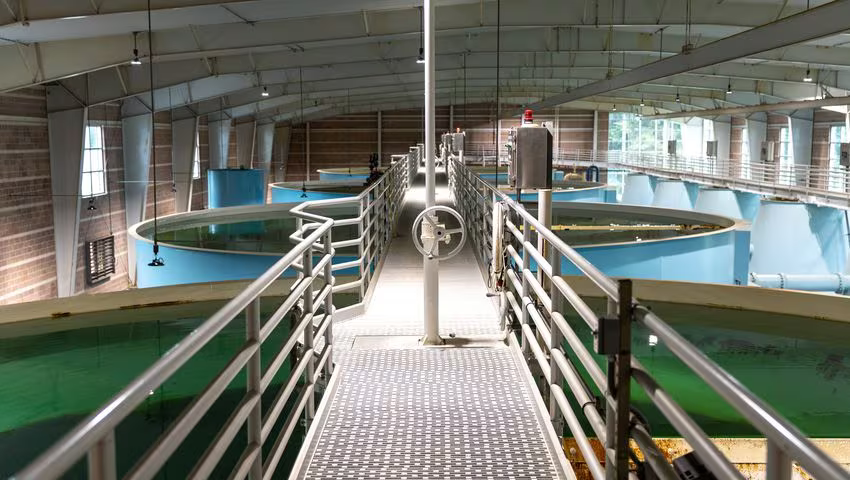GET A FREE QUOTE TODAY - CALL US 770-652-0076
Highlighting the benefits of full facility disinfection across air, water and surfaces
The world would like to forget COVID-19 and return to normal like a pandemic never happened. And that is understandable. But we should not overcompensate and forget that bacteria, fungi, and viruses of myriad types are still with us and will continue to cause harm locally and occasionally globally.
If a water supply system is not appropriately secured, regulated, and maintained, contamination may happen at any moment from several sources or locations. The risk of contamination may not be eliminated if the danger is natural or continuous. Most of the time, treatment will be necessary.
During the COVID-19 pandemic, hygiene became a top priority in every aspect of life. As we transition to the post-COVID era, maintaining good hygiene standards should remain a priority, especially at work, where many people are in close contact. One way to do that is by implementing full facility disinfection across air, water and surfaces.
Full facility disinfection means more than scrubbing the toilets and clearing the breakroom fridge. It involves using advanced technologies, such as UV lighting, to disinfect every nook and cranny of a facility. It includes air purification systems that filter out harmful particles and pathogens, water filtration and disinfection systems that ensure the water supply is free from contaminants, and surface disinfection procedures that eliminate bacteria and viruses on all surfaces.
While many facilities did ramp up their cleaning protocols during the pandemic, it is essential to avoid getting complacent now and assume that threats have passed. There are still many harmful pathogens that can pose a risk to workers' health. Full facility disinfection can help to eliminate these risks and promote a healthier environment for everyone.
In addition to its health benefits, full facility disinfection also improves the work environment overall, boosting the mood and attitude of employees and customers. It creates a more welcoming atmosphere for staff and visitors, increasing satisfaction and productivity.
Bad hygiene brings serious consequences
Governments around the world are now in the process of developing cleanliness rules and regulations to protect consumers and employees. But these are still a work in progress, and until they are completed, water companies must take responsibility for ensuring the safety of their products and working environments. This should include disinfection standards.
It is not only about protecting workers; it is also about preventing the spread of pathogens to customers through the products workers handle. Viruses and bacteria can easily be picked up from contaminated surfaces and objects, and the infectious agents can then be passed along to customers and cause widespread illness.
Rather than simply follow government guidelines, companies should take a proactive approach to protecting public health. They should continue to apply the hygiene practices they learned during
COVID for now and in the long term. By implementing robust
disinfection standards, companies can play their part in promoting a safer and healthier world for everyone — while also protecting their brand.
UV shows the way to a healthier workplace
In the past, chemicals such as chlorine were the go-to disinfection method and are still widely used in the food industry. But chlorine comes with a lot of concerns attached. It causes environmental damage when it enters waterways, requires special storage, and poses safety risks.
In water storage tanks, drip trays and the reservoirs of humidifiers and cooling towers, disinfection devices such as UV immersion systems ensure safe, hygienic water and tank surfaces, and prevent the formation of biofilms. The risk of legionella in open water tanks and spray systems can be effectively controlled. Installing the system directly into the liquid uses the UV power in two ways: the water passing through the system is disinfected with each circulation, and then the continuous irradiation of the surfaces inside the water containers prevents the build-up of biofilms.
UV disinfection is a better alternative. It does not change the taste or odor of water, while it inactivates any bacteria, virus or fungus present. It also has a smaller carbon footprint, lower energy consumption, and almost no safety concerns.
UV can eliminate almost all known viruses, bacteria and fungi, making it a powerful disinfection solution. It is also increasingly popular due to its effectiveness against emerging contaminants. It has become the preferred choice in many industries, even the swimming pool industry, where traditional chemicals like chlorine are no longer effective against certain waterborne pathogens like cryptosporidium parasites. Overall, UV disinfection checks all the boxes regarding safety, sustainability and efficacy.
In the post-COVID world, keeping hygiene standards high is crucial. This is where full facility disinfection comes in. By thoroughly disinfecting the air, water and surfaces in their facilities, water companies can create a safer environment, protect public health better and keep operations performing at their peak.











